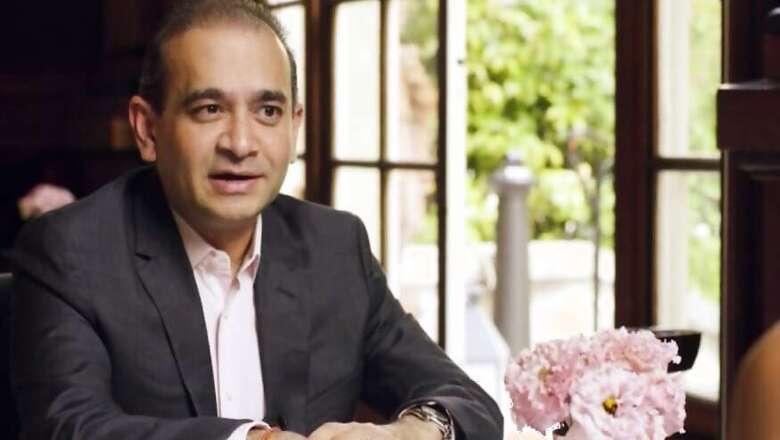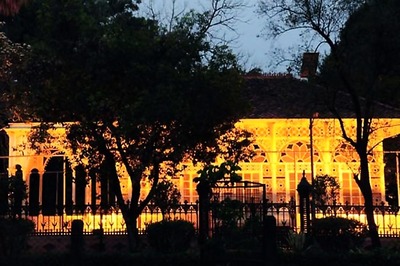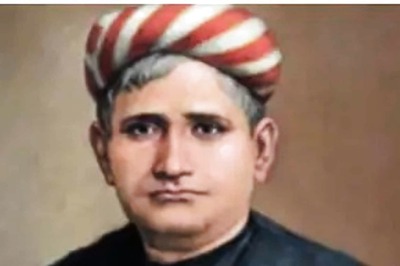
views
The ingenuity of a successful lawyer lies in an ease in making the cheeky appear acceptable, and the outlandish look reasonable. The new offer on behalf of Nirav Modi to come out on bail appeared ingenious even if it wasn’t successful.
The offer was presented to the appeals court in the London High Court by Edward Fitzgerald, surely one of the most successful — and expensive — barristers practising in London. And he too, like the others who have argued for Nirav Modi before, would begin with an advantage: the presumption is for bail to be granted over arrest in an extradition case. Vijay Mallya has been on bail three years now, and he has been a free man within limits of not being allowed to travel outside of England, so not even Scotland. But all of England is a far more attractive jail than is Wandsworth prison where Nirav Modi has been detained.
Fitzgerald, also the lawyer for Julian Assange of Wikileaks, made the following offer for Nirav Modi:
• A bail security of 4 million pounds
• 24-hour house arrest at his flat at Centre Point in London that would be GPS-monitored
• 24-hour electronic tagging to monitor his movements
• 24-hour security officer to be present inside his flat who would monitor Nirav Modi’s movement from room to room and report any breach of bail conditions
• The 24-hour guard will be based in the hall of the flat. Nirav Modi would have to be unlocked to get from his bedroom to the hall, the guard will have the keys to let Modi from any room to another
• The fully trained security guard, a former police or military official, would stop Nirav Modi if he tried to leave and call the police. He would have access to a 24-hour panic button to alert the police
• Nirav Modi would have two phones, one only for his solicitor, and the second for pre-programmed callers on which all calls would be recorded
• Visitors would have to be pre-approved and the guard would have the power to remove electronic devices from them
The above conditions offered, it was argued, would keep Nirav Modi more restricted in such house arrest than he was in prison.
It was argued also that since July 2018, when the last alleged attempt was made, Nirav Modi had made no attempt to interfere with witnesses. He had in any case offered himself for arrest earlier, and that given his preparations to fight extradition, there was no reason for him to flee to an uncertain fate when he had the rule of law to rely on; he would be safer in Britain than in any other country. And given the four attacks on him in prison, the first in April 2019 followed by three more — the last in November 2019 — he deserved to be relocated into house arrest.
The arguments and all they offered came to nothing. Nicholas Hearn appearing for the Crown Prosecution Service acting for the Indian government argued that he remained skeptical that the conditions offered would make breach of bail impossible. His arguments:
• The court would be entrusting someone in ways very different from detention in custody
• A tag does not make it impossible to abscond
• If he were to try to flee, the security guard, not being a police officer, would have no legal basis to detain him. Such a guard in any case had no legal basis to imprison Nirav Modi or anyone else at home. Modi would not be under 24-hour police or jail guard
• Nirav Modi clearly has access to considerable resources, of which the bail security offered, and the defence hired to present his case, were examples
• Nowhere had Nirav Modi disclosed the source of the money he was putting forward — on each occasion of making a bail application, he has refused evidence on the source of these funds
• If he felt the case was going against him, there would be nothing to stop him fleeing. Someone could be waiting for him in a car outside and he would be gone before the guard could call in the police
• Modi is not being tried or investigated in UK so it was not for UK authorities to monitor his calls. He speaks languages other than English, so that would make monitoring difficult
Justice Dove accepted Hearn’s arguments. And after this fifth rejection of bail, the second time by the high court after three failed attempts at the magistrate’s court, Wandsworth prison is where Nirav Modi is likely to stay at least until the beginning of the extradition hearing on May 11 of this year.

















Comments
0 comment